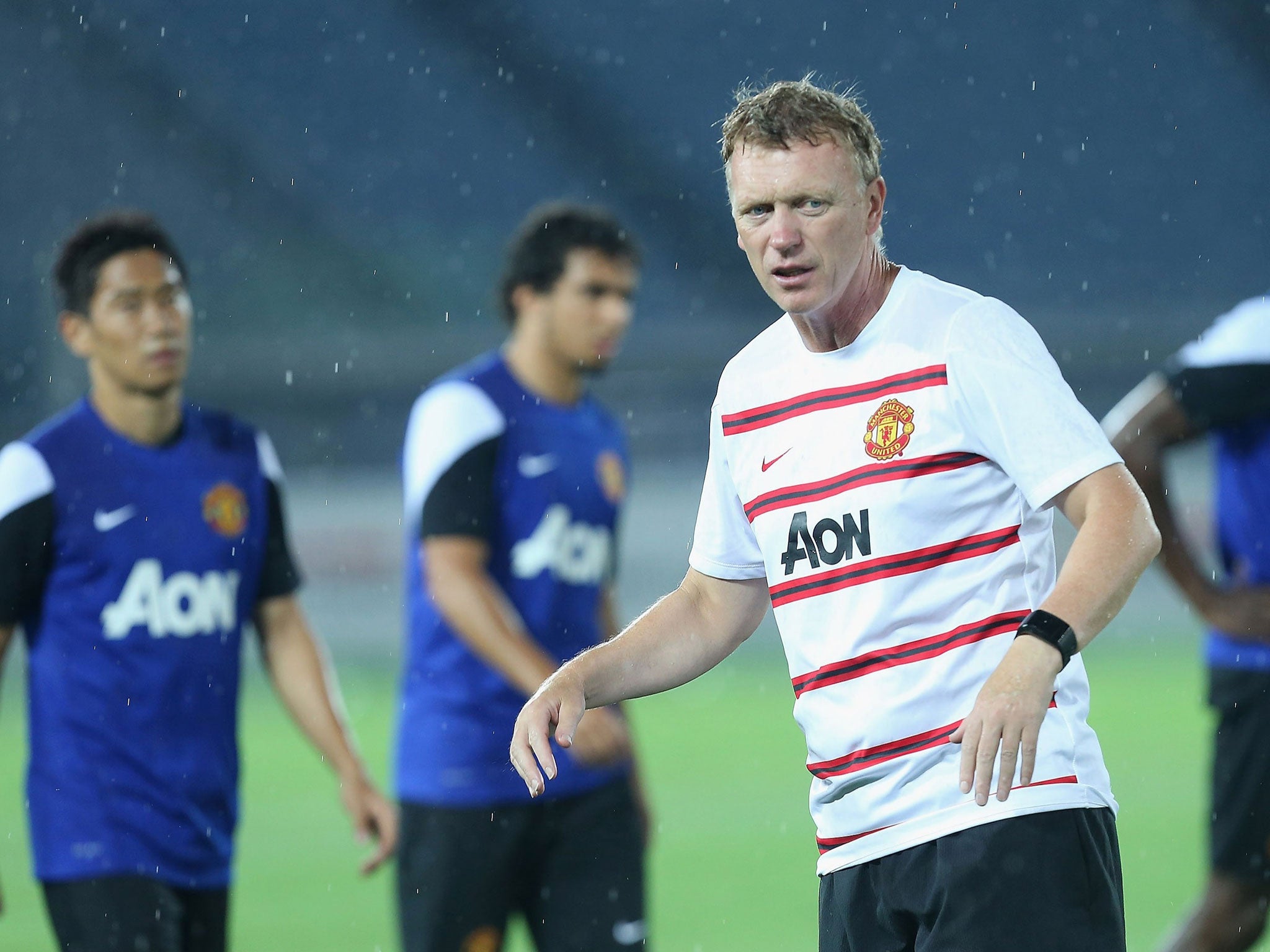Manchester United and Arsenal battle new balance of power amid frustrations over deals for Cesc Fabregas and Gonzalo Higuain

Your support helps us to tell the story
From reproductive rights to climate change to Big Tech, The Independent is on the ground when the story is developing. Whether it's investigating the financials of Elon Musk's pro-Trump PAC or producing our latest documentary, 'The A Word', which shines a light on the American women fighting for reproductive rights, we know how important it is to parse out the facts from the messaging.
At such a critical moment in US history, we need reporters on the ground. Your donation allows us to keep sending journalists to speak to both sides of the story.
The Independent is trusted by Americans across the entire political spectrum. And unlike many other quality news outlets, we choose not to lock Americans out of our reporting and analysis with paywalls. We believe quality journalism should be available to everyone, paid for by those who can afford it.
Your support makes all the difference.The two teams were in Japan on Monday, doing their off-season duties, but Manchester United and Arsenal both had their eyes on Spain. That is where the success of their summers will be defined, in the delicate market for players.
United want Cesc Fabregas and Arsenal want Gonzalo Higuain. David Moyes confirmed on Monday morning in Yokohama that United “have made a second offer” for Fabregas, but that it was being handled by chief executive Ed Woodward. “When you’re interested in good players, you want to give it every opportunity to materialise,” Moyes said, “and I’ll do that.” By last night it was reported in the Catalan press that Barcelona had said no for a second time.
Arsenal have not been quite as open in public as United, but made Argentina striker Higuain their initial summer target and were close to a deal before his price increased.
So both United and Arsenal are still deep in the negotiation process, hoping to convince the players and their clubs of the strength of their offers and their futures. That they have to do so, though, underlines the resilient imbalance in European football.
United need Fabregas, who would provide all of the character, dynamism and style they have lacked in central midfield for years. Arsenal require Higuain, having clearly missed a suitable replacement for Robin van Persie since his departure to Old Trafford last year.
Both players, if bought, would not be mere upgrades but should catalyse their whole teams. United, with a world-class midfielder, would be a force in Europe next year. Arsenal, with a better striker on top of their recently-improved defence and midfield, might be closer to titles, too.
These are roles far beyond what Fabregas and Higuain enjoy in Spain. Fabregas, after two seasons at Barcelona, is still struggling to find his voice, given the strength of the midfield that was already there when he joined. Higuain, despite a telling body of work, is increasingly sidelined behind the more politically popular Karim Benzema.
The attractions of Barcelona and Madrid are obvious, but United and Arsenal still need to work and work to persuade these two to exchange peripheral status at giant clubs to talisman status at big ones.
Should Arsenal not sign Higuain, also subject to interest from Napoli, they have to make a similar case to Luis Suarez – that being the leading man at the Emirates is preferable to being in the chorus line at the Bernabeu. Of course, Suarez knows better than most the frustrations of being too big for his pond but, with this move as well, Arsenal find themselves rather at Real’s mercy. If Real offer Liverpool as much as Arsenal do for Suarez, they will struggle to compete.
This has been a summer, so far, in which the old financial punching power of the Premier League has rather come up short. The top striking targets of Manchester City and Chelsea, Edinson Cavani and Radamel Falcao, chose to move to France rather than England, which would have been unthinkable just three years ago.
City also wanted Isco, who preferred Real Madrid, while United wanted Thiago Alcantara, who, like many others, chose a harder fight for places – in his case at Bayern Munich – rather than star billing in the Premier League.
So the likeliest big transfer this summer in England is a domestic one – Wayne Rooney leaving United to Chelsea. He, too, would be more important to his new team than to his current side but would come without the complication of having to switch leagues. He is happy in England, so a move to Chelsea would make sense for all parties.
The problem, though, is that United may not be quite so willing to sell Rooney until they land a high-profile, talented attacking player first. A player like Fabregas, in fact, the long slow pursuit of Barcelona’s man still occupying their thoughts as they go on to play Yokohama F-Marinos this morning, and Cerezo Osaka after that.
Join our commenting forum
Join thought-provoking conversations, follow other Independent readers and see their replies
Comments